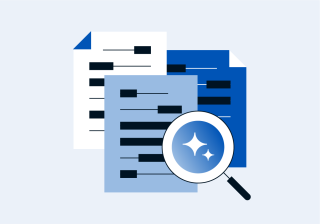Navigating the Future of Legal AI: Q&A With Industry Experts
Ahead of Legalweek, a panel of industry leaders from Litera, Law.com, and top global law firms convened for an exclusive webinar to discuss the latest developments in Generative AI (GenAI) for legal work. The session covered security concerns, best practices, real-world applications, and the evolving role of AI in the legal industry. Below is a summary of the key Q&A discussions from the webinar.
Q: If we put non-public information in AI prompts, will it be secure?
A: Litera is committed to secure and compliant data handling, with ISO 27001 and SOC 2 Type II certifications ensuring robust protection. Customer data is stored within specific jurisdictions to align with local data residency regulations. Using Microsoft Azure’s infrastructure, Litera AI+ maintains complete isolation and encryption of data, ensuring high security standards. For further details, users can refer to Microsoft’s Azure Compliance Documentation.
Q: Are there AI applications that strictly rely on legal precedent rather than generating fictitious cases?
A: Yes. Litera AI+ is designed to mitigate hallucinations by leveraging a firm’s Document Management System (DMS) and internal data rather than relying on public sources. Within Litera One, lawyers will be able to deliver high-quality legal work based on their firm’s experience, ensuring greater reliability and transparency.
Q: How are law firms training lawyers to transition from traditional methods to GenAI processes?
A: Litera takes an iterative approach to AI adoption, recognizing that education and training are essential. Solutions Consulting and Customer Enablement teams work closely with firms to design adoption programs and training courses, available through Litera University. These programs help lawyers familiarize themselves with GenAI capabilities while minimizing risks associated with incorrect AI-generated results.
Q: How does Litera AI support legal document summarization?
A: Litera provides several summarization capabilities:
- Kira’s GenAI features allow document chat summaries with linked citations for transparency.
- Kira’s Smart Summaries generate easy-to-read summaries of extracted clauses and text for due diligence.
- Litera Compare enables users to generate a bulleted summary of redline changes, which can be copied into an email to keep stakeholders informed.
Q: Are law firms looking for an all-in-one AI solution, or do they prefer specialized tools for different practice areas?
A: The legal market is still exploring AI adoption strategies. Some firms prefer a suite of AI tools tailored for different functions, while others seek an all-in-one solution. Litera AI+ is designed to integrate seamlessly across multiple legal workflows, providing specialized capabilities for drafting, contract review, knowledge management, and firm performance.
Q: How does GenAI impact the economics of law firms, given the traditional billable hour model?
A: While AI increases efficiency, it also enables lawyers to handle higher volumes of work and focus on more complex legal matters. Law firms can shift toward value-based billing, leveraging AI-driven efficiencies to deepen client relationships and drive business development.
Q: What should in-house legal teams consider when adopting AI?
A: In-house teams should prioritize:
- Cloud-first technology
- Modular AI solutions for flexibility
- Quick wins with plug-and-play tools
- Security and compliance in AI applications
- Integration with existing systems to maximize impact
Q: How do regulations like the EU AI Act and CCPA affect AI adoption in legal work?
A: Legal AI systems must comply with stringent regulations, ensuring transparency, data governance, and human oversight. Firms should maintain audit trails, avoid black-box AI, and implement policies for responsible AI use. Additionally, any AI handling California consumer data must adhere to privacy rights, including data minimization and user consent policies.
Q: What resources would you recommend for a non-technical person to understand AI?
A: For those new to AI, introductory books, online courses, and legal tech publications can provide a strong foundation. Industry reports and whitepapers from legal AI providers also offer valuable insights into practical applications.
To learn more, watch the full on-demand webinar here, and learn more about our approach to AI here.




